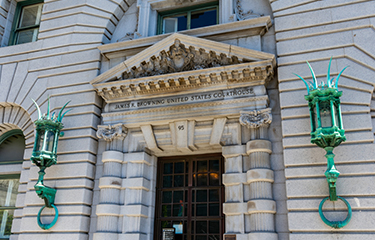The king salmon troll fishery in Southeast Alaska will be allowed to open in just over a week after the U.S. Court of Appeals for the Ninth Circuit paused a district court ruling that threatened to keep the fishery closed this summer and winter.
“This has been an extremely challenging time for all of us,” Alaska Trollers Association (ATA) Executive Director Amy Daugherty said. “But thankfully, with the state’s help and the tribes recent declarations and our delegation, we have alerted the court to the disastrous consequences of a summer in [Southeast Alaska] without trolling.”
The decision comes just days before the fishery is set to open on 1 July. The appeals court panel ruled 21 June that Judge Richard Jones from the Western District Court of Washington was mistaken when he vacated portions of a 2019 Southeast Alaska biological opinion that allowed for commercial chinook salmon trolling in the region, even if the document was flawed. The court added that the State of Alaska and ATA had shown that the impact of the closure on the commercial fishing industry likely outweighs the “speculative environmental threats” of keeping the fishery open while the biological opinion is fixed.
“A flawed agency rule does not need to be vacated upon remand and instead may be left in place when equity demands,” the panel wrote.
“We are grateful for the 9th circuit recognizing the overwhelming impacts that the district court’s ruling would have on the residents of Southeast Alaska,” ATA attorney Doug Steding said.
NOAA Fisheries has been working to correct the 2019 Southeast Alaska biological opinion since Jones' 2 May ruling.
The challenge to the commercial king salmon troll fishery began in 2020 when the environmental nonprofit Wild Fish Conservancy sued NOAA Fisheries. The group claimed the 2019 Southeast Alaska biological opinion used to justify the commercial harvest relied on uncertain information, and commercial fishing is depriving southern resident killer whales of their prey, leading to starvation and population decline. There are estimated to be just 73 of the endangered marine mammals left.
The district court ruled in WFC’s favor in 2021, agreeing that the biological opinion was flawed. WFC then asked the court for a temporary restraining order to vacate the portions of the document that supported the king salmon troll fishery. Judge Jones again found in WFC’s favor, vacating those portions and remanding the biological opinion back to NOAA Fisheries to be corrected. That action effectively closed the troll fishery before the summer season even began.
WFC hailed the decision as a major victory for killer whale recovery, while industry groups insisted that the ruling would not actually help wild orcas.
“As a wild salmon-focused environmental organization, SalmonState condemns the Wild Fish Conservancy’s misguided, irresponsible litigation – which in all probability won’t save a single endangered killer whale, but will ruin the livelihoods of thousands of Southeast Alaska’s most committed, long-term conservationists and wild salmon allies,” SalmonState Executive Director Tim Bristol said. “This is an abuse of the Endangered Species Act by out-of-touch, ideological, serial litigants.”
The ruling kicked off a flurry of legal filings as the state and ATA looked to the Ninth Circuit Court of Appeals for relief. The groups filed a motion to stay the lower court’s decision to vacate portions of the biological opinion, which was ultimately granted on 21 June.
“The Ninth Circuit got it right when it found that Alaska’s fishing interests outweighed the 'speculative environmental threats,’” Governor Mike Dunleavy said. “The ruling comes just in time so that our commercial troll fishers in Southeast have a season. And we are grateful for it.”
However, the battle may be continuing on another front. Earlier this month, WFC informed the State of Alaska that it plans to petition NOAA Fisheries to list Southeast Alaska chinook salmon habitat under the Endangered Species Act. While the ESA has been used to protect a number of chinook salmon habitats, Alaska Department of Fish and Game Commissioner Doug Vincent-Lang told SeafoodSource he had confidence no chinook salmon stocks are in danger of extinction in Southeast Alaska.
“The state does not believe that any Alaskan chinook salmon stocks are endangered or threatened with extinction in the foreseeable future,” Vincent-Lang said. “There is a big difference between not having enough surplus fish to support a directed fishery and a stock being threatened with extinction. ADF&G foremost salmon management priority is to provide for the long-term health and sustainability of the state’s stocks. The ESA is not the right tool to address issues related to low productivity.”
Photo courtesy of Michael Vi / Shutterstock







